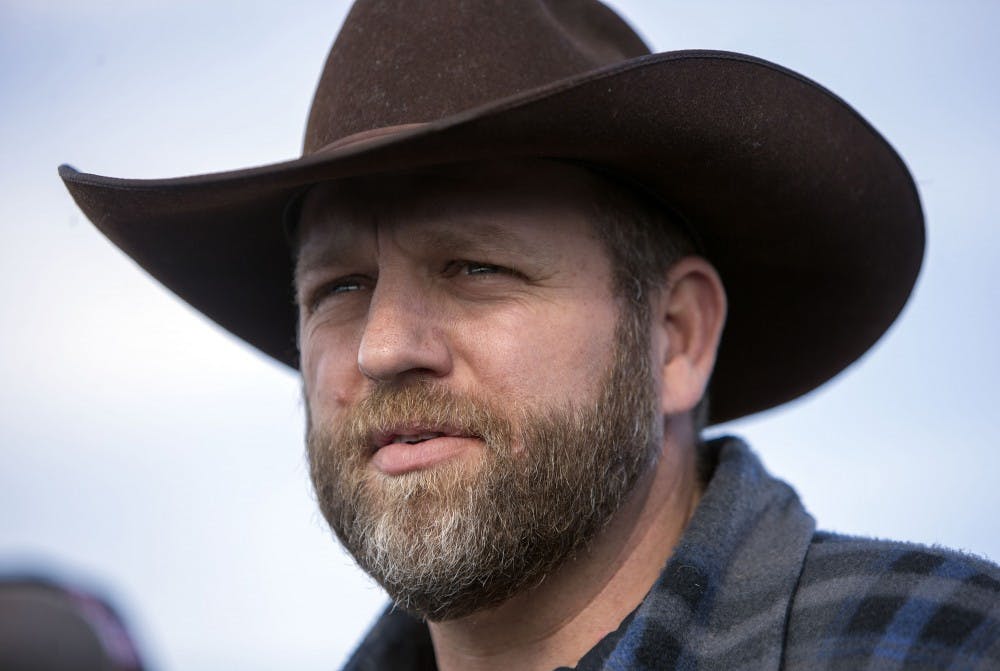I worry that what separates a “terrorist” from an “anti-government activist” is ethnicity and religion. Lately, it seems that if you’re white, you can perform a mass shooting or occupy federal land and be called “mentally unstable.” However, if you happen to be of a different skin color, or you are a religion other than Christian, you may end up with the label of “terrorist.”
Last month, armed men led by former Phoenix resident Ammon Bundy invaded and occupied a vacant federal building on the Malheur National Wildlife Refuge in Oregon. Joining him was Jon Ritzheimer, the Phoenix resident who led an anti-Muslim protest at a local mosque last year. Ritzheimer is a member of the Three Percenters, a paramilitary militia group.
The group took control of the complex in the beginning of January, and quickly began making themselves at home. They ripped down fences bordering federal lands, conducted armed patrols of the area and inspired hundreds of like-minded individuals to come to the town of Burns, Oregon to protest.
The group disrupted the daily lives of the local population, were openly confrontational with federal and local authorities and claimed they were non-violent but carried assault rifles and night-vision goggles.
Ammon Bundy was following the footsteps of his father, Cliven Bundy, who inspired a similar standoff last year after it was found that he had been illegally grazing his cattle on federally owned lands.
The stated goal of the protesters was to see the federal government hand that land back to the “people.”
Knowing all of this, I was curious about how the media would label these men. The FBI uses three things to define “domestic terrorism.”
Domestic terrorism incidents:
1. Involve acts dangerous to human life that violate federal or state law;
2. Appear intended (i) to intimidate or coerce a civilian population; (ii) to influence the policy of a government by intimidation or coercion; or (iii) to affect the conduct of a government by mass destruction, assassination or kidnapping; and
3. Occur primarily within the territorial jurisdiction of the U.S.
I am not a legal scholar, but it would seem to me that the occupation in Oregon would certainly fit into that criteria. In fact, it seems like a slam dunk.
Why then, have I been reading the phrase “anti-government protesters” over and over again this month? This would be like referring to bank robbers as “wage inequality activists.”
If Ammon Bundy’s group of militants and radicals were Muslim citizens, protesting the United States’ presence in Muslim holy lands, would we still call them anti-government protesters? I doubt it.
I wish the media would grow a bit of a backbone, as the harshest word I’ve seen used to describe the “protesters” in the mainstream news has been “militant.” I wish the FBI would follow their own definition for domestic terrorism, and that the government would prosecute those responsible accordingly. I wish race or religious creed wouldn’t play a role in how we define the actions of these individuals, but it seems that it does.
A crime is a crime, and crimes performed as an attempt to coerce people into your way of thinking sound like terrorism to me. The media and government should define terrorist actions as terrorism regardless of race or belief.
Reach the columnist at cjwood3@asu.edu or follow @chriswood_311 on Twitter.
Editor’s note: The opinions presented in this column are the author’s and do not imply any endorsement from The State Press or its editors.
Want to join the conversation? Send an email to opiniondesk.statepress@gmail.com. Keep letters under 300 words and be sure to include your university affiliation. Anonymity will not be granted.
Like The State Press on Facebook and follow @statepress on Twitter.




